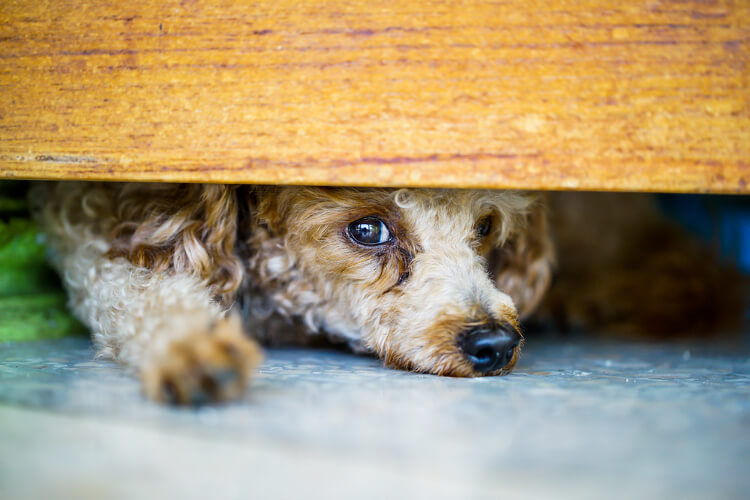Australia is a country packed full of animal lovers. In fact, at 63 percent, Australia has one of the highest pet ownership rates in the world. Two in every five households own a dog, while the number of domestic cats grows year on year. The same can be said for birds, companion horses, rabbits, guinea pigs and reptiles. But even so, there are some in the community who treat animals cruelly.
So, what do you do if you suspect animal cruelty?
Recognising the signs
Most animal cruelty cases are separated into three categories: unintentional, intentional, and cruel intent. When you know which one is which, you are better equipped to report it.
It may be hard to believe, but many people don’t realise they are being cruel to animals. Neglect, animal hoarding and failing to meet an animal’s basic needs are good examples. This type of abuse is what’s referred to as ‘unintentional’ cruelty, and sometimes all that’s required is a lesson on what is right from someone knowledgeable.
‘Intentional’ animal abuse is cruelty that is performed with the knowledge that an animal is being harmed or possibly injured. If the cruelty is reoccuring, this is what’s referred to as ‘cruel intent’. Abusers in the cruel intent category are often fuelled by the sense of power, control or enjoyment they receive when inflicting pain or fear on others.
There are many different signs of animal cruelty that you can look out for, including:
- Offensive smells from a home or yard, such as ammonia or faeces
- Lack of shelter, food, water, human care and medical treatment
- Flea, tick or parasite infestations
- Untreated open wounds or sores
- Injured animals showing no signs of medical treatment
- Hair loss, lesions, scabs and other untreated skin conditions
- Unnecessary tying up/ being tied up for long periods
- Confinement to hot or cold areas such as cars, garages, basements or other enclosed areas
- Malnutrition or an emaciated appearance
- Hostile, aggressive behaviour towards other animals or people
- Inadequate socialisation
- Unsanitary conditions or an overcrowded environment
- Animal abandonment
- Acts of violence – physical striking or kicking
- Maggots or flies that could indicate disease or infection
- A collar becoming embedded into the skin
- The death of one or more animals under suspicious conditions
If you notice any of these symptoms, it won’t always point to abuse, but in some cases it might. As pets have no voice to cry out for help, it’s important that you do it for them.
Be the eyes and the ears for the animal you suspect is being abused, and if you feel it could be unintentional animal abuse, talk to your local veterinarian or an RSPCA member before any serious injury or ailment occurs. If you suspect intentional cruelty or cruel intent, notify local law enforcement immediately. Be prepared to provide them with dates, locations and specific instances of abuse, and make note of any other animals in the care of the suspect. Without putting yourself in harms way it could also be helpful to get photos.. This way ALL animals in their care can be rescued immediately.
RSPCA inspectors
Nationally, the RSPCA employs over 100 inspectors across the country. The role of these inspectors is to investigate and respond to the 50,000 reports of animal mistreatment given every year.
As you can imagine, these inspectors are under a lot of pressure, as is the RSPCA, who fund their wages. The more hands on and thorough you can be when reporting such incidences, the better equipped they will be to handle the case, and the more pressure is taken off the RSPCA.
RSPCA inspectors have a range of powers to enforce animal welfare law, and the inspectorate works closely with animal owners to educate and advise them on appropriate care.
Animal Welfare Act
While there are no national laws applying to animal welfare, all states and territories in Australia regulate animal welfare in their jurisdiction. Despite the idea of unintentional, intentional and cruel intent categories, most animal welfare acts don’t try to define an act in an exclusive way. Instead, animal cruelty is described generally as any act or omission that causes unnecessary or unreasonable harm to an animal.
State and territory animal welfare legislation prohibits all forms of animal cruelty, and imposes strict obligations that must be met by all animal owners. If an owner is found in breach of these obligations, they can face heavy fines, loss of ownership and imprisonment.
You can find a link to your state or territory’s animal welfare legislation here.
Reporting animal cruelty
When reporting cases of animal cruelty to the RSPCA (which includes acts of neglect or abandonment), you should report it via the phone or online form. Northern Territory reports should be made through the NT Government.
You can find a list of phone numbers and report links here.
If you suspect commercial livestock is being cruelly treated, complaints should be directed to the Animal Health Officer at your local Department of Economic Development, Jobs, Transport and Resources office, or via the customer service centre on 136 186.
In the case of an animal cruelty emergency, always call the police. Police can investigate cases of animal cruelty far quicker than other resources can. To make your complaint you should have ready:
- Your details – name, address and phone number. These may be required during the course of investigation. Don’t worry, your details will be kept confidential.
- A description of the alleged cruelty in as much detail as possible. You may be asked for a description of the animal, the location, and the condition of the animal.
- Contact details for the people involved in the alleged cruelty.
- Any evidence you may have of the incident – ie photographs, video or vehicle registration number
Following your complaint an investigating officer has the power to:
- Take no further action
- Provide education and advice
- Issue a formal notice to comply
- Seize the animal and collect evidence
- Begin prosecution
If you suspect someone is abusing an animal, please speak up, even if it’s someone you know well. Be a hero, and be the voice that animals don’t have!







There is a very large dog next door, I have not seen him off his chain for at least 2 weeks (I do homeschool so I’m home all day and can see) he whines an howls most of the day and night, the only time I’ve seen the neighbours go to him is to swear at him if his whines are annoying them. He has water but I’m not sure about food. I’ve snuck some to him just in case.he is enclosed in a very small are for a dog his size. And there’s a fair amount of faeces in that area. Should I investigate a little more or go straight to the RSPCA.